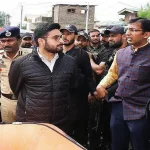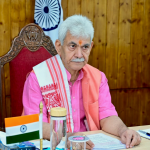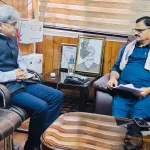Highlighting the importance of G20 in a multipolar world, the External Affairs Minister stressed the importance of finding “common ground” to safeguard this institution amid rising tensions due to polarization globally.
Jaishankar was speaking at the G-20 Session titled ‘Discussion on the Global Geopolitical Situation’ in South Africa on Thursday.
He expressed gratitude to South Africa Minister Ronald Lamola and South African President Cyril Ramaphosa.
”The G20 is an important expression of the world’s growing multi-polarity. It captures the diversity of our interests, cultures and outlook. For this very reason, its ability to harmonize viewpoints is key to advancing the global agenda,” Jaishankar said in his remarks.
“However, the polarization of recent years has created visible stress and distorted priorities. What we could do was, to somehow, find enough common ground to safeguard this institution. Today, the imperative is to go beyond that.,” he added.
The EAM also pointed to the challenges faced due to Covid pandemic, conflict situations, financial pressures, food security and climate change.
“The global geo-political situation remains difficult by any definition. Some of it is the accumulated challenges of the Covid pandemic, conflict situations, financial pressures, food security and climate concerns. But there are also the current anxieties about concentrated supply chains, weaponization of trade and finance, and transparency of data flows.
Looking ahead, differential progress on AI and EV, space, drones or green hydrogen have clear geo-political implications,” he said
In conclusion, Jaishankar pointed to the realities of geopolitics and reiterated the need to find common ground by observing international law and respecting the UN Charter.
“Geo-politics is a reality, as is national interest. But the very purpose of diplomacy – and a group like G-20 – is to find common ground and create the basis for collaboration. We can do so best by observing international law, respecting the UN Charter and preserving institutions,” the EAM said.
“Differences must not become disputes, disputes should not become conflicts, and conflicts should not lead to a bigger breakdown. There are lessons from the last few years for all of us to reflect on. But equally, an experience to draw upon as we seek to lead the world to a better place,” he added. (ANI)





